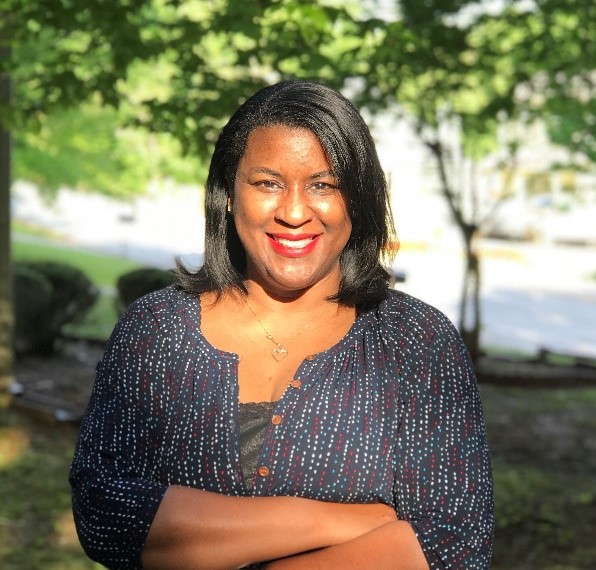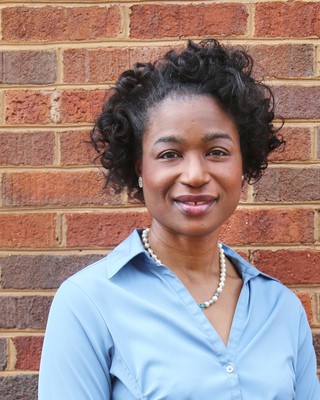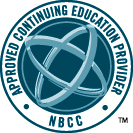
Building Professional Excellence

Revive, Refresh, Renew: Personal Resilience to Reinvigorate Your Practice
Rates of burnout among counselors have been measured at over 40% and up to 80% in some clinician groups. Burnout can be caused by internal characteristics that contribute to success as a counselor, such as dedication, compassion, and empathy, as well as external factors, such as workload, isolation, lack of control, and productivity requirements. The purpose of this webinar is to assist counselors with identifying the warning signs of burnout and the impact burnout has on emotional well-being. Counselors will be guided to assess their current capacity for self-care and identify areas for growth and development. Resilience building strategies will be explored.
After this webinar, participants will be able to:
- Identify and describe burnout risk factors and symptoms.
- Recognize the importance of counselor self-care on the counselor’s effectiveness with clients.
- Develop a personal resilience plan to establish work–life balance and maintain therapeutic engagement with clients.

Lynell Howard, PhD, NCC, LPC, CPCS
Dr. Lynell Howard has been providing psychological counseling and consulting services for over 20 years. She began her career as a member of a private group practice where she engaged in clinical counseling and psychometric assessment. She later established an independent practice and has served numerous counseling and consulting clients in small and large organizations, including the U.S. Armed Services, public school districts, state government, and the private sector. She has interests in military mental health, trauma, research, and organizational training.
In 2016 Dr. Howard founded Howard Harris & Associates, LLC, which specializes in providing professional training and development for behavioral health providers and other professionals. A native of New Orleans, Louisiana, and current resident of Lawrenceville, Georgia, she holds licenses as a professional counselor in both Georgia and Louisiana and has been a practicing consultant and clinician in various settings. She earned a bachelor’s degree in psychology from Tulane University, a master’s degree in clinical psychology from Midwestern State University, and a doctorate in industrial/organizational psychology from Capella University. She is a board certified counselor and has provided training and consulting services across the U.S., Europe, and Asia.
Q & A
Using Evidence-Based Resiliency Practices in Counseling
Part One: Developing a Resiliency Mindset
Resilience is defined from multiple perspectives. Thematically, however, researchers agree that resilience describes the successful or positive adaption after adversity or trauma. People have situations in their lives in which their sense of safety, control, belonging, and worth are violated deeply, yet not all people decompensate into psychopathology. Researchers recognize that people who exhibit resilience tend to learn from their trauma or adverse experiences and make a conscious effort to positively move forward.
This interactive three-part webinar series is designed to increase attendees’ capacity to cultivate resiliency in individuals with disabilities and mental health conditions. Throughout the series, participants will increase their capacity to provide culturally responsive services to clients from under-served and racially or culturally diverse backgrounds.
Part One of the series defines resiliency from a human development and a vocational rehabilitation counseling perspective. It uses knowledge of social identity development and racial and cultural identity development to help rehabilitation professionals approach client progress through services as an opportunity to foster resiliency.
After this webinar, participants will be able to:
- Define resiliency from multiple perspectives.
- Describe resiliency using social identity, disability, and racial/cultural identity development models.
- Apply resiliency concepts across the rehabilitation process.

Michell Temple, EdD, NCC, CCTP, CRC, CTMH, LPC (GA), LPC/MHSP (TN)
Dr. Michell Temple is a 2019 NBCC MFP Doctoral Fellow alumna. She currently serves as president of the National Association of Multicultural Rehabilitation Concerns and as the counselor and ADA coordinator at Tusculum University in Greeneville, Tennessee, where she teaches as adjunct faculty. Dr. Temple is a counselor educator and therapist specializing in rehabilitation and mental health counseling in community and higher education settings. She brings professional commitment, practice, education, and research to this topic by way of her NBCC MFP fellowship experience and dissertation topic.
Dr. Temple holds an EdD from the University of West Georgia in professional counseling and supervision and a MS in rehabilitation counseling from Georgia State University. Dr. Temple is also working on her PhD from Regent University in counselor education and supervision with the aim of preparing future and current counselors to provide high-quality services to individuals with disabilities from diverse backgrounds. Her research focuses on concepts of restoration and transformation. She explores the lives of people and determinants of health in a variety of socio-ecological contexts. Her areas of research include people from diverse ability and cultural backgrounds, resilience, hope, posttraumatic growth, self-determination theory, spirituality and religion, trauma and adverse childhood experiences, ethics, and counselor identity development. Dr. Temple has served as a mental health assessor, disability services coordinator, assistant director and director of disability services, vocational rehabilitation counselor, and community work evaluation/adjustment case manager.
Q & A
Using Evidence-Based Resiliency Practices in Counseling
Part Two: Basic Skills of Resiliency in Clinical Practice
Resilience is defined from multiple perspectives. Thematically, however, researchers agree that resilience describes the successful or positive adaption after adversity or trauma. People have situations in their lives in which their sense of safety, control, belonging, and worth are violated deeply, yet not all people decompensate into psychopathology. Researchers recognize that people who exhibit resilience tend to learn from their trauma or adverse experiences and make a conscious effort to positively move forward.
This interactive three-part webinar series is designed to increase attendees’ capacity to cultivate resiliency in individuals with disabilities and mental health conditions. Part One of the series defines resiliency from a human development and a counseling perspective. Part Two of the series prepares attendees to foster resiliency in clients across the counseling process. Part Three introduces attendees to empirically validated resiliency scales that can enhance counseling practices and promote positive outcomes. Throughout the series, participants will increase their capacity to provide culturally responsive services to clients from under-served and racially or culturally diverse backgrounds.
Part Two: Basic Skills of Resiliency in Clinical Practice
Part Two of the series prepares attendees to foster resiliency in clients across the rehabilitation process. It will introduce attendees to strategies for providing services from clients’ sociocultural perspectives.
After this webinar, participants will be able to:
- Explore protective and risk factors of resiliency from the perspective of social determinants of health, adverse childhood experience, and trauma.
- Describe practices that promote an understanding of resiliency from a multicultural perspective.
- Develop skills to promote resiliency using a socio-ecological framework.

Michell Temple, EdD, NCC, CCTP, CRC, CTMH, LPC (GA), LPC/MHSP (TN)
Dr. Michell Temple is a 2019 NBCC MFP Doctoral Fellow alumna. She currently serves as president of the National Association of Multicultural Rehabilitation Concerns and as the counselor and ADA coordinator at Tusculum University in Greeneville, Tennessee, where she teaches as adjunct faculty. Dr. Temple is a counselor educator and therapist specializing in rehabilitation and mental health counseling in community and higher education settings. She brings professional commitment, practice, education, and research to this topic by way of her NBCC MFP fellowship experience and dissertation topic.
Dr. Temple holds an EdD from the University of West Georgia in professional counseling and supervision and a MS in rehabilitation counseling from Georgia State University. Dr. Temple is also working on her PhD from Regent University in counselor education and supervision with the aim of preparing future and current counselors to provide high-quality services to individuals with disabilities from diverse backgrounds. Her research focuses on concepts of restoration and transformation. She explores the lives of people and determinants of health in a variety of socio-ecological contexts. Her areas of research include people from diverse ability and cultural backgrounds, resilience, hope, posttraumatic growth, self-determination theory, spirituality and religion, trauma and adverse childhood experiences, ethics, and counselor identity development. Dr. Temple has served as a mental health assessor, disability services coordinator, assistant director and director of disability services, vocational rehabilitation counselor, and community work evaluation/adjustment case manager.
Q & A
Using Evidence-Based Resiliency Practices in Counseling
Part Three: Using Resiliency Scales to Inform Service and Treatment Planning
Resilience is defined from multiple perspectives. Thematically, however, researchers agree that resilience describes the successful or positive adaption after adversity or trauma. People have situations in their lives in which their sense of safety, control, belonging, and worth are violated deeply, yet not all people decompensate into psychopathology. Researchers recognize that people who exhibit resilience tend to learn from their trauma or adverse experiences and make a conscious effort to positively move forward.
This interactive three-part webinar series is designed to increase attendees’ capacity to cultivate resiliency in individuals with disabilities and mental health conditions. Throughout the series, participants will increase their capacity to provide culturally responsive services to clients from under-served and racially or culturally diverse backgrounds.
Part Three of the series introduces attendees to empirically validated resiliency scales. Attendees will increase their capacity to apply information from these tools to promote resiliency in clients throughout the counseling process.
After this webinar, participants will be able to:
- Articulate a research-based rationale for the development and integration of a resiliency framework in vocational rehabilitation counseling.
- Describe the assessment tools utilized in a resiliency evaluation and promotion plan.
- Utilize assessment results to co-create an individual resiliency plan to promote specific resiliency skill development.

Michell Temple, EdD, NCC, CCTP, CRC, CTMH, LPC (GA), LPC/MHSP (TN)
Dr. Michell Temple is a 2019 NBCC MFP Doctoral Fellow alumna. She currently serves as president of the National Association of Multicultural Rehabilitation Concerns and as the counselor and ADA coordinator at Tusculum University in Greeneville, Tennessee, where she teaches as adjunct faculty. Dr. Temple is a counselor educator and therapist specializing in rehabilitation and mental health counseling in community and higher education settings. She brings professional commitment, practice, education, and research to this topic by way of her NBCC MFP fellowship experience and dissertation topic.
Dr. Temple holds an EdD from the University of West Georgia in professional counseling and supervision and a MS in rehabilitation counseling from Georgia State University. Dr. Temple is also working on her PhD from Regent University in counselor education and supervision with the aim of preparing future and current counselors to provide high-quality services to individuals with disabilities from diverse backgrounds. Her research focuses on concepts of restoration and transformation. She explores the lives of people and determinants of health in a variety of socio-ecological contexts. Her areas of research include people from diverse ability and cultural backgrounds, resilience, hope, posttraumatic growth, self-determination theory, spirituality and religion, trauma and adverse childhood experiences, ethics, and counselor identity development. Dr. Temple has served as a mental health assessor, disability services coordinator, assistant director and director of disability services, vocational rehabilitation counselor, and community work evaluation/adjustment case manager.
Q & ANBCC Foundation has been approved by NBCC as an Approved Continuing Education Provider, ACEP No. 805. Programs that do not qualify for NBCC credit are clearly identified. NBCC Foundation is solely responsible for all aspects of the programs.
Each state sets its own requirements for licensure, including continuing education requirements to maintain licensure. Questions about CE requirements for state licensure should be directed to your state board. You can find their contact information on our state board directory.

